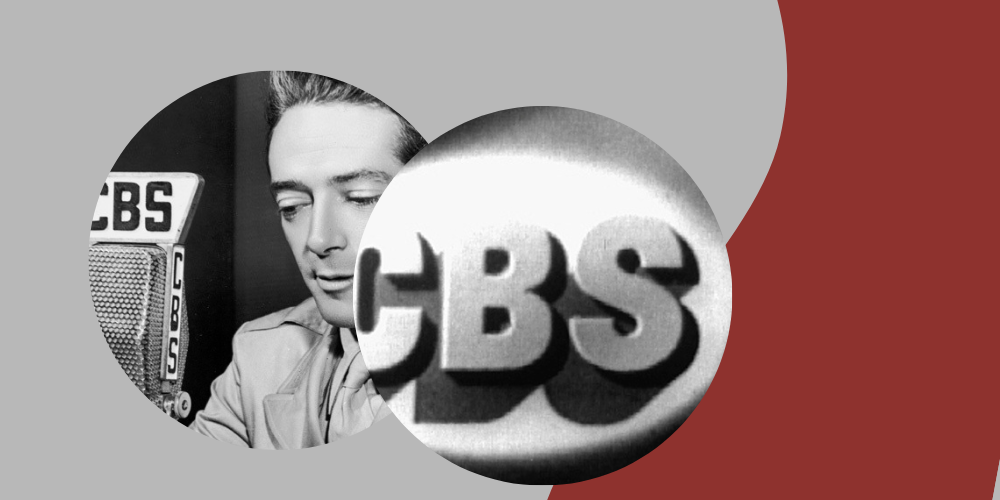The History of CBS: CBS Broadcasting, Inc. (CBS; formerly the Columbia Broadcasting System) is a commercial broadcast television and radio network in the United States controlled by Paramount Global through the CBS Entertainment Group. It is one of the classic “Big Three” American television networks, along with ABC and NBC. Here is The History of CBS
History
CBS began as a radio network in 1927 before expanding to television in the 1940s. Although it remained essentially an independent firm for the majority of the twentieth century, from 1929 to 1932, Paramount Pictures maintained a 49 percent ownership stake. However, Westinghouse Electric Corporation purchased the corporation in 1995, renaming it CBS Corporation (after selling certain assets). CBS sold again in 2000 to the original Viacom (established as a spin-off of CBS in 1971, which purchased Paramount Pictures in 1994). Viacom separated into two distinct corporations in 2005, re-establishing CBS Corporation. However, until 2019, when both businesses agreed to re-merge to form ViacomCBS, National Amusements controlled both CBS and the second iteration of Viacom.
In the spring of 1940, CBS staff engineer Peter Goldmark created a color television system that CBS management anticipated would put the network ahead of NBC and its current black-and-white RCA technology. The CBS system “produced brilliant and stable colors,” but the NBC system was “crude and unstable but ‘compatible.'” The FCC eventually rejected the CBS system because it was incompatible with RCA’s, as well as the fact that CBS had moved to get much ultra-high frequency (UHF), rather than very high frequency (VHF), television licenses, leaving them behind in the early television period.
Radio to TV
Radio remained the company’s backbone in the early 1950s, but it was “a strange, twilight period” in which some cities had multiple television stations that drew off the audience from radio, while others, such as Denver and Portland, had no television stations at all. Network radio remained the sole nationally broadcast service in certain areas, as well as rural areas and some entire states. When NBC’s legendary Fred Allen was paired against upstart ABC’s game program Stop The Music!, his ratings plummeted; within weeks, he was dumped by longstanding sponsor Ford Motor Company and was quickly gone from the scene.
As the television network developed, radio stars began to migrate to the new medium. During the transition, several programs aired on both platforms. The radio soap opera The Guiding Light made the transition to television in 1952, where it would remain for the next 57 years; Burns & Allen, returning “home” from NBC, did so in 1950; Lucille Ball a year later; and Our Miss Brooks in 1952 (though it continued on radio for its entire television run).
Expansion
During the 1960s, CBS began looking for suitable investments to diversify its portfolio. Their purchases eventually resulted in the firm being divided into numerous operating groups and divisions. CBS purchased Fender from Leo Fender, who agreed to sell his company owing to health issues, in 1965. The transaction also included Rhodes electronic pianos, which Fender had previously acquired. The quality of the products manufactured by these purchased enterprises plummeted considerably. Prompting the words “pre-CBS” to refer to higher-quality products and “CBS” to refer to mass-produced products of poorer quality.
CBS and Columbia Records
CBS purchased Columbia Records in 1938. It was established in 1962 to promote Columbia recordings outside of North America, where the Columbia name was controlled by other organizations. CBS Records was spun off from the Columbia Broadcasting System in 1966. On November 17, 1987, CBS sold the CBS Records Group to Sony. Launching a Japanese buying frenzy of American corporations such as MCA, Pebble Beach Co. Rockefeller Center, and even the Empire State Building that lasted until the 1990s. Because Sony held a short-term license on the CBS name, the record label was renamed Sony Music Entertainment in 1991.
CBS and publishing
CBS entered the publishing business in 1967 when it purchased Holt, Rinehart & Winston. A publisher of trade books and textbooks, as well as the magazine Field & Stream. The following year, CBS purchased the medical publishing company Saunders and combined it with Holt, Rinehart & Winston. CBS surrendered its book publishing operations in 1985. The educational publishing division, which retained the Holt, Rinehart & Winston name, was sold to Harcourt Brace Jovanovich. The US trade book section, renamed Henry Holt and Company, was sold to the West German publisher Holtzbrinck.
READ ALSO:




